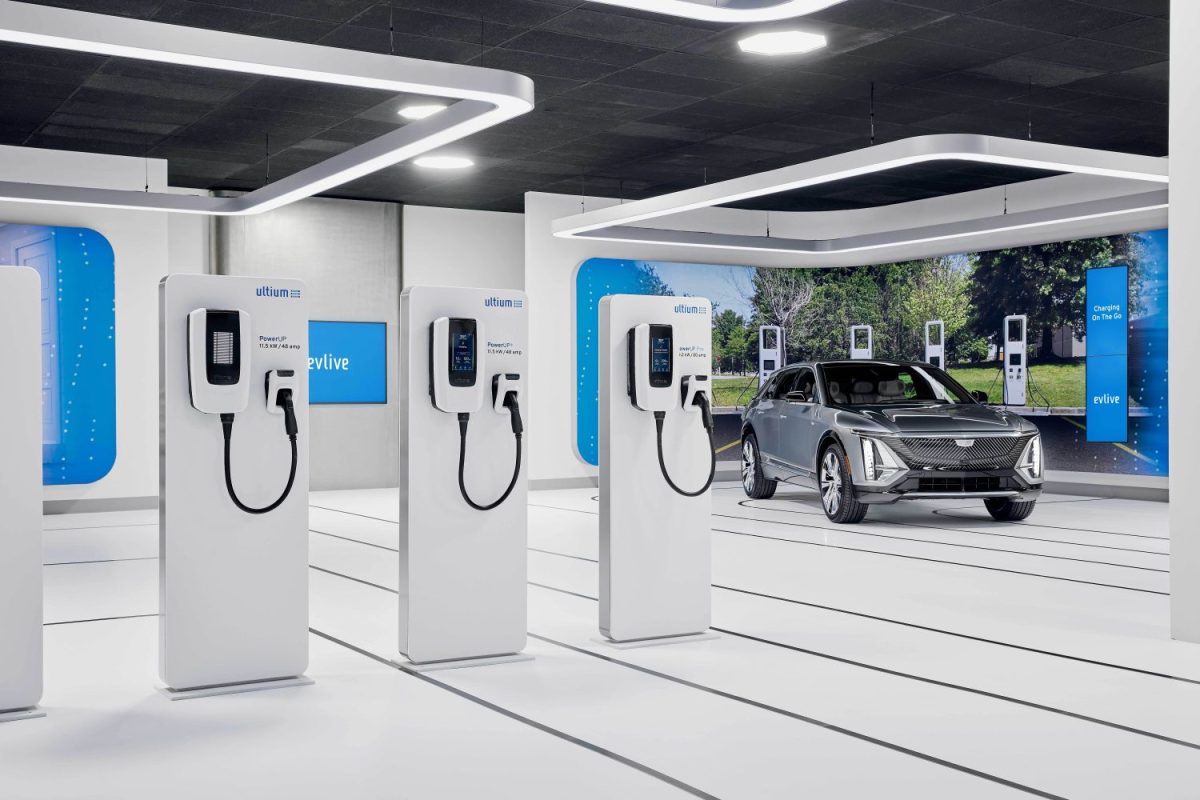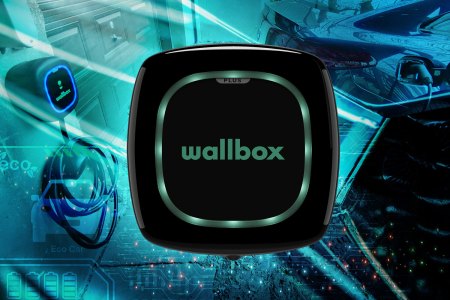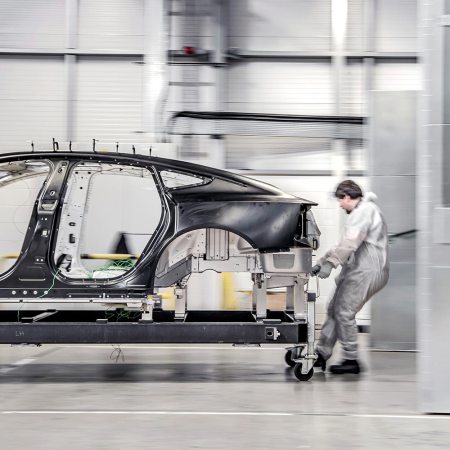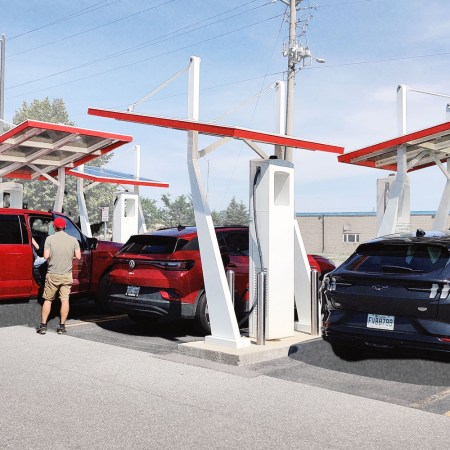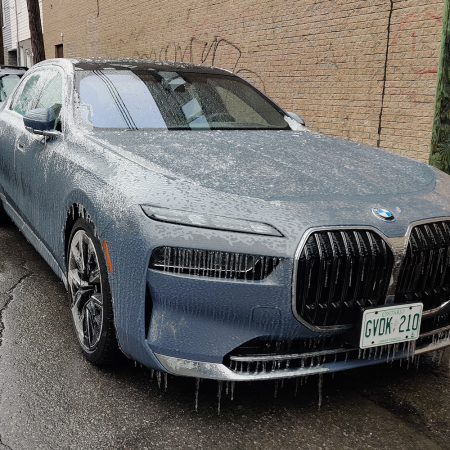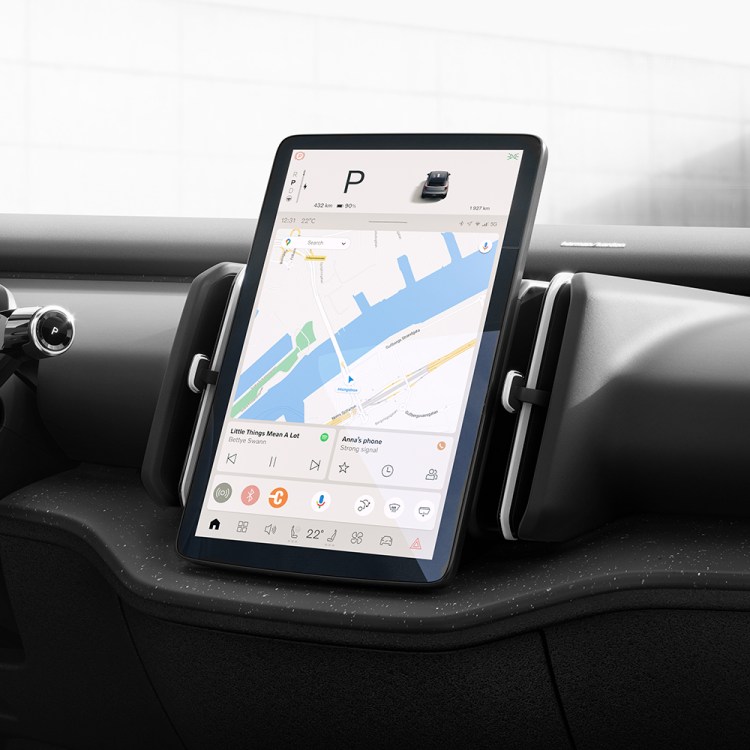Between unpredictable gas prices and full-blown climate change, there’s never been a better time to make the switch to an electric vehicle. That basic logic aside, though, switching from a gas-powered car to one that needs to be plugged in can be a little more daunting than just swapping out your keys.
You know what could make the process easier? How about a video hotline with electric vehicle experts on the other end, ready to walk you through any EV question, no matter how small? Enter EV Live, an agnostic chat line for electric vehicle owners, those interested in becoming owners, even skeptics. Though the platform is owned by General Motors, it’s purposefully designed to be a tool for anyone making the switch to electric. When would-be drivers schedule what GM calls a “one-on-one live video tour,” a real, live person will walk them through charger troubles, battery concerns and even range-related anxiety.
“The mission of EV Live, first and foremost, is to promote electric vehicles as a smart choice today,” says Hoss Hassani, vice president of charging and energy at GM. “That also means ensuring the people who did choose an EV, even if they are our competitor’s customers, don’t have remorse that they went electric. This is us teaching, but this is also us learning, so it’s very much a reciprocal thing, which is why we’re doing it.”
The hotline is available daily all across the U.S. (you just need an internet-connected device), but since California is the biggest market in the country for electric vehicles — and within the state, Los Angeles is the most concentrated hub by far — awareness about this resource is extra relevant for Angelenos.
In fact, the decision to go electric is easier than ever for California residents, thanks to substantial tax breaks and an abundance of chargers. Hassani notes that 40% of all electric vehicle sales take place in California, and nearly half of the country’s charging infrastructure is here as well. It’s hard to pull into a boutique hotel, a trendy new restaurant or a high-end mall these days without seeing spots reserved for electric vehicles. All the effort the state has put into speeding up the transition to EVs is paying off.
“As California goes, so goes the rest of the country on EVs,” Hassani says. “California deserves credit, frankly, for a regulatory environment that has been a catalyst for the pace at which the auto industry is transforming to electrification. Manufacturers who were not in the EV game — of which there were many — were starting to see their fortunes flag in California as the market and preferences shifted there. California has been on the leading edge of electrification.”
Everything You’ve Wanted to Know About Installing an EV Charger in Your Home
Is it expensive? Safe? Convenient? Here’s what I learned after hooking up the Pulsar Plus from Wallbox.As consumers get accustomed to the idea of plugging in an SUV like you would a phone, other opportunities for improving public infrastructure are already on the horizon. Car battery tech is improving so fast that it might not be that long before cars could function as a sort of spare battery for the home, allowing an electric vehicle to work similarly to a backup generator.
In states like Texas and California, where rolling blackouts are quite common, the car-to-grid model has the potential to shift the conversation on how needs around power are met. “As General Motors tries to get everybody into EVs, and pursue this transformation across the industry, promoting the other benefits of having an electric vehicle is going to be a big part of our communications,” Hassani says. “This is where we get into how your vehicle can power your home, through what we call bidirectional charging and vehicle-to-grid integrations.”
But before those plans can become a reality, educating buyers about the actual experience of using an electric vehicle is key. Hence the totally accessible nature of EV Live, an electric vehicle concierge that’s completely free and available to everyone, no matter their perspective (or their prior exposure to anti-EV propaganda).
“With the sustainability and recyclability side of things, we’re getting people coming in with counterprogramming,” Hassani says. “People who are closer to an oil-producing state might be getting exposed to more propaganda. There are also misconceptions about cost; people still think these are luxury cars that are unattainable and unaffordable. That’s a real myth-busting exercise. Putting aside the environmental side of it and sustainability, there’s a lot of questions about battery life. People think they have to service the battery, or it will fade like a phone battery, so that’s one where people come in with the wrong information.”
All these factors can hold consumers back from going all in on electrification, so dealing with them one at a time, on a case-by-case basis, is part of the key to moving forward. Since what’s at stake is potentially as big as the future of our planet, it’s worth it to GM to invest in human conversations to educate and change minds.
“There are really very few industries that are creating an opportunity for you to call in and have a one-on-one conversation,” Hassani says. “We think that’s core to what General Motors is about. We want to have everybody in an EV. To do that, we know we’ve got some convincing and ‘splaining to do — as Lucy and Desi would say — and that’s what EV Live is all about. It’s creating this very safe, approachable, always-on space for people to contact and have a conversation with no strings attached.”
Learn more about EV Live here.
This article was featured in the InsideHook LA newsletter. Sign up now for more from the Southland.
